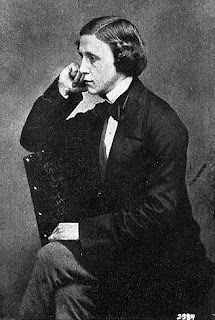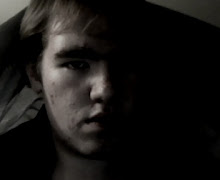I must admit, I rather enjoyed writing that bit of nonsense. Once you open yourself up to the realm of the unimaginable phantasmagoria, it's really quite fun.
Reminded of Virginia Woolf, "It's really quite fun being mad. You have wonderful ideas, much more interesting then when you're sane."
Lewis Carroll as we know him, never existed. It's a pen name. It's Dodgson, his real name. There's a fascination with this "Lewis Carroll" figure, speculations on his sexuality and rumors of his dark, tormented personal life, kept hidden even from the most dedicated researchers. What was in those "missing pages" of his diaries? But we've gotten it all wrong. We shouldn't be obsessing over "Lewis Carroll" but instead we should be obsessing over Charles Dodgson.
Reminded of Virginia Woolf, "It's really quite fun being mad. You have wonderful ideas, much more interesting then when you're sane."
Lewis Carroll as we know him, never existed. It's a pen name. It's Dodgson, his real name. There's a fascination with this "Lewis Carroll" figure, speculations on his sexuality and rumors of his dark, tormented personal life, kept hidden even from the most dedicated researchers. What was in those "missing pages" of his diaries? But we've gotten it all wrong. We shouldn't be obsessing over "Lewis Carroll" but instead we should be obsessing over Charles Dodgson.

The works of "Lewis Carroll" and Rev. Charles Dodgson are one and it is unfair to ignore the works of one while praising the other. The two are even intertwined--the routine spectical of mathamatics pops up in both Alice books and The Hunting of the Snark. There should be as much scholarly dedication to Dodgson's "serious" works (including Curiousa Mathematica, Euclid and His Modern Rivals and Symbolic Logic) as there has been to the fantastical Jabberwocky.
JPC


